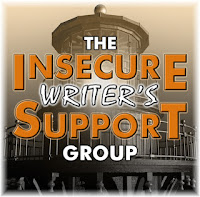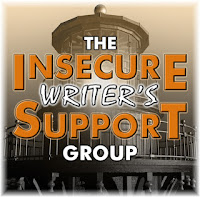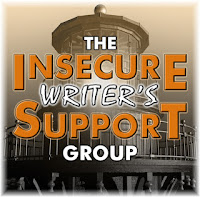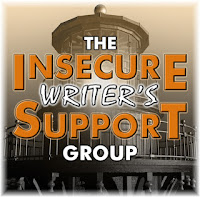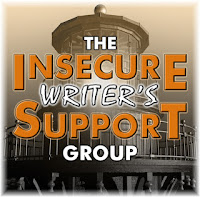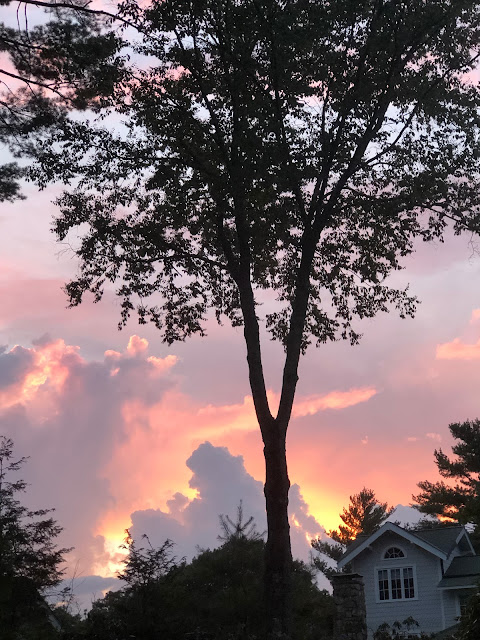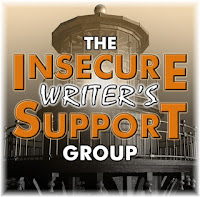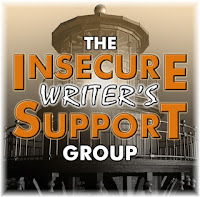Welcome to IWSG Day. The goal of this blog hop is to share and encourage. Writers can express doubts and concerns without fear of appearing foolish or weak. Those who have been through the fire can offer assistance and guidance. It’s a haven for insecure writers of all kinds. IWSG is the brainchild of Alex Cavanaugh. To find other contributors, click here. Thank you to this month’s co-hosts: Joylene Nowell Butler, Chemist Ken, Natalie Aguirre, Nancy Gideon, and Cathrina Constantine!
No optional question for me this month, instead, you get a story.
I’ve mentioned earlier that my current writing project is
not going fast, or easily, or well.
Now, pack that thought into a cupboard for a bit as I share
the following.
As a teen, I spent two summers working and living in a
country inn in New Hampshire where I made friendships I still treasure. That first
summer, I met “K.” a writer who’d already published a memoir by the time I
arrived on the scene. My autographed copy retains pride of place on my bookshelf.
As time went by in those pre-internet, pre-email,
pre-just-about-anything-technological years, Christmas communications included
long letters. Cards from K. and his wife contained essays he’d written about
their young son and how as a dad, he learned life lessons while fielding his inquisitive
boy’s direct questions. The stories were always sweet, sometimes whimsical,
mostly funny, and if he compiled them into a collection, a suitable title might
be, Parenting is Not for Sissies.
Fast forward to few years ago. Our major daily publishes a
Sunday magazine section featuring a personal essay on the last page. Ages ago one of
my own essays was featured, so each week I read it with interest to gauge the
quality of the writing. One Sunday, I was drawn into a lovely piece and before
long found the voice so familiar, I stopped mid-read to search for the
byline. Sure enough, it was written by K.
Last week, K. emailed me that he would have another essay
published in the upcoming Sunday supplement. When the day arrived, I made myself read
the news methodically, savoring the anticipation of what I would find at the
end. It didn’t disappoint. His essay about overcoming nerves while taking
flight beside his son, a newly licensed pilot, made me wince, chuckle, and
ponder a universal truth. It never feels like our adult children are grown up
until they prove us wrong. I read it again and again.
So where am I going with this?
Well, the thing of it is, I’m not feeling great about my
fourth attempt at a publishable novel. For months, I’ve been trudging up a
mountain of slog, trying to develop one of my characters which is changing everything
I’ve spent the last year-and-a-half writing. For the first time ever, I'm allowing myself to procrastinate (writing blog posts helps with that), and worse, can picture not finishing. But shortly after reading the piece by my old NH friend, I
was inspired to sit in front of my computer and bang out my own story, about not hosting Thanksgiving for the first time in thirty years. How the holiday I’d expected to
feel strange and altered turned into a memory I will savor.
Like K. I used real life examples and wrote from the heart. For
the first time in a while, my fingers flew to catch up with my thoughts and
when I was done, I felt that dopamine buzz that let me know I’d done something
good.
I walked away from the computer with a six-hundred-word
piece and a big fat reminder that what I love about writing is just that. The
writing. No matter how unforgiving the slog, they can’t take that away from me.
